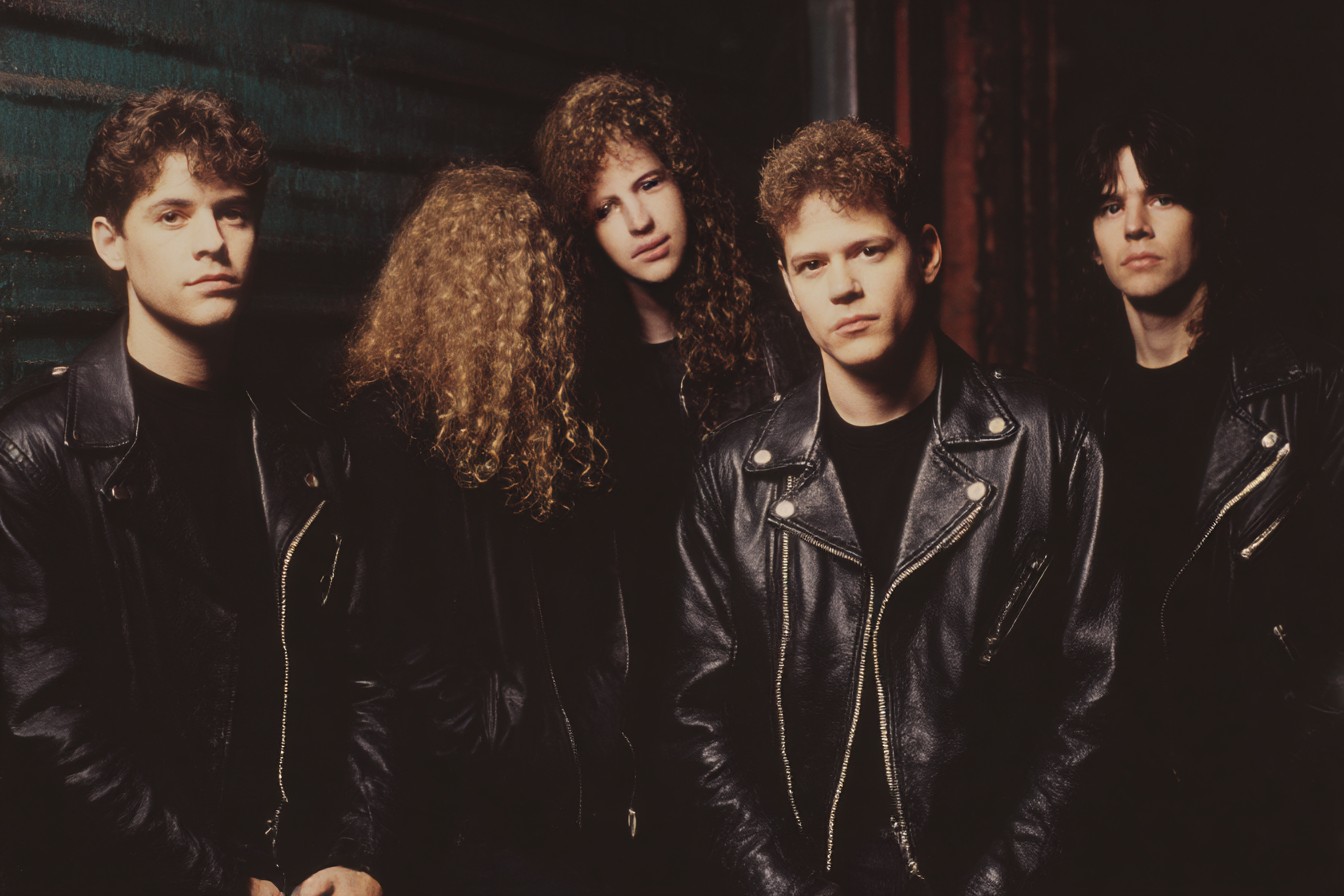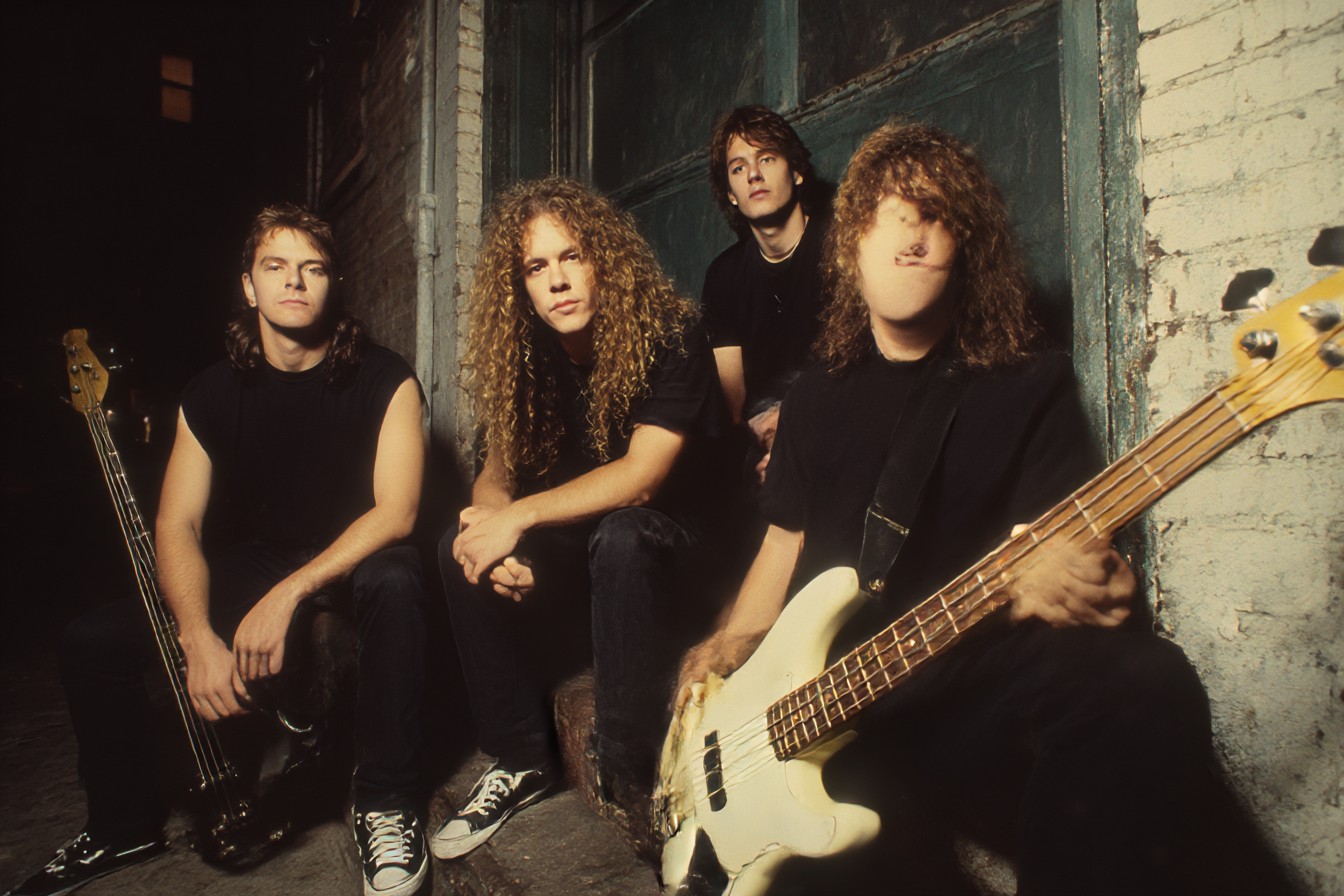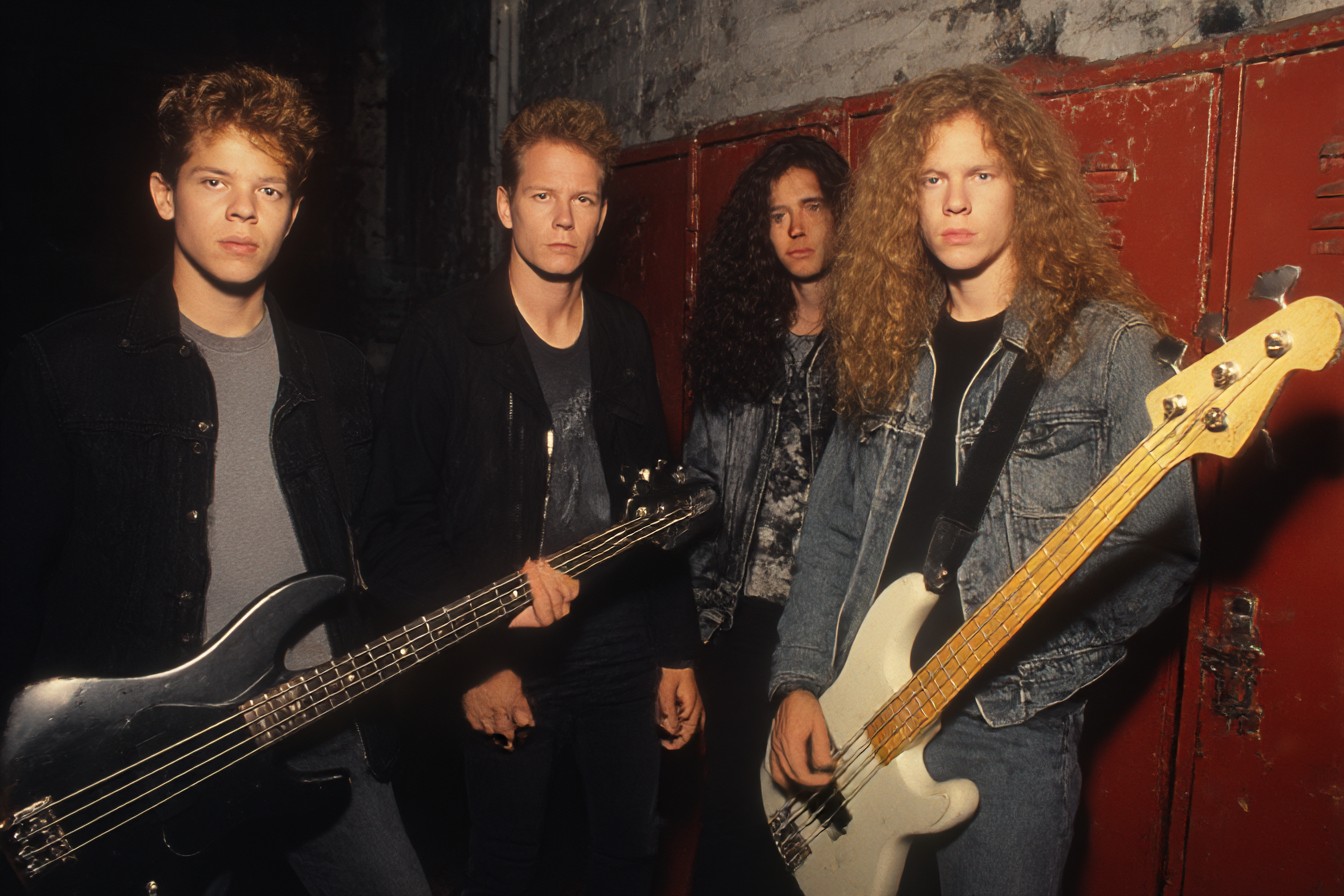I remember the day I first got my hands on “The $5.98 EP: Garage Days Re-Revisited” like it was yesterday—August 1987, standing in my local record store with sweat running down my back (the AC was perpetually broken that summer), holding what looked like the musical equivalent of a band exhaling after holding their breath for way too long. The sticker price was actually $6.98—an irony that wasn’t lost on sixteen-year-old me, who’d spent the morning mowing old Mrs. Henshaw’s lawn specifically to buy this record. “Inflation’s a bitch,” the guy behind the counter said with a shrug when I pointed out the price discrepancy. Whatever. I would’ve paid double.
This wasn’t just any release. This was the first official Metallica recording featuring Jason Newsted on bass after the tragedy that still feels difficult to talk about all these years later—the death of Cliff Burton. God, even typing that sentence still gives me a knot in my stomach. The bus accident in Sweden had happened less than a year earlier, and the metal community was still processing it. I mean, Cliff wasn’t just a bassist; he was the philosophical core of early Metallica, the guy who brought in the weird influences and pushed them beyond being “just” a thrash band. I’d had actual arguments with friends about whether Metallica should even continue without him. (Teenagers have a flair for the dramatic, but in our defense, it really did feel that consequential at the time.)
So here was this EP, this casual-looking collection of covers, that was actually carrying the weight of an impossible question: What is Metallica without Cliff Burton?
The brilliance of “Garage Days” was its deliberate looseness. Five covers, recorded in—you guessed it—a garage (well, Lars’ garage that they converted into “The Thunderdome” for recording). Raw production, minimal overdubs, no ballads, no epics, just the sound of four guys (including the new guy) playing the music that influenced them. It was like the band was saying, “Before we figure out what’s next, let’s remember why we started in the first place.”
I took that record home, set it on my turntable (a hand-me-down from my uncle that had definitely seen better days), and dropped the needle. The opening bass notes of “Helpless” (Diamond Head) hit, and I remember physically exhaling. Not because Jason was trying to be Cliff—he wasn’t, and couldn’t be—but because it sounded like Metallica. Different, sure, but recognizably them. I played that EP four times straight through that night while attempting to finish a history paper that was due the next day. Let’s just say Mr. Peterson learned way more about the Saxon kings than he probably wanted to, written by a kid hopped up on thrash covers at 1 AM.
The track selection told you everything about Metallica’s DNA—Diamond Head, Holocaust, Killing Joke, Budgie, and the Misfits. Not exactly Billboard chart-toppers, but crucial building blocks in Metallica’s musical foundations. Two NWOBHM bands, a post-punk band, a Welsh prog-rock/heavy metal group, and horror punk legends—it was like getting a peek at the band’s record collections, the stuff they played for each other in their earliest incarnations.
There’s something so nakedly honest about “Helpless” as the opener. The hunger in Hetfield’s voice isn’t affected—it’s the sound of a dude whose band had been gut-punched by tragedy, standing up again, and remembering why they do this in the first place. When he growls “We are helpless…to walk away,” it felt like both acknowledgment and defiance. Yeah, they’d lost Cliff. Yeah, it was devastating. No, they weren’t stopping.
I knew “The Small Hours” (Holocaust) already from my tape-trading days, and Metallica’s version managed to preserve the eerie, building quality of the original while Hammett’s guitar gave it this new texture that still felt coherent with the source material. That middle section where everything drops away except the drums and that creepy guitar line? I remember rewinding my cassette copy to hear that transition over and over, trying to figure out how they made something heavy feel so unsettling at the same time.
Then there’s “Killing Joke,” which—I’ll be honest—I pretended to know about before this EP but absolutely didn’t. I was that kid, the one who nodded knowingly while secretly planning to go hunt down the original as soon as humanly possible. The stomping rhythm and dissonant, angular guitar work were unlike anything else in Metallica’s catalog up to that point. It was obvious why they dug this band, though; there’s a darkness and intensity that fit perfectly with where Metallica’s heads were at.
“Crash Course in Brain Surgery” might be my favorite track on the EP, if only because it showcases that Metallica’s musical appetites were always weirder and more diverse than people gave them credit for. Budgie wasn’t an obvious influence to cite in 1987—they were this cult Welsh band that straddled the line between prog rock and early metal. The song’s got this swinging, almost bluesy quality beneath the thrash treatment. I remember my bass player friend Pete being obsessed with this track—he made me play it on repeat while he tried to figure out what Newsted was doing.
And then there’s “Last Caress/Green Hell,” the Misfits medley that closed out the EP. This was my introduction to the Misfits (yeah, I know, I was late to that particular party), and the contrast between the almost upbeat melody of “Last Caress” and its completely disturbed lyrics was a revelation. Metallica sounded like they were having fun for the first time since Burton’s death—there’s an audible smirk in Hetfield’s delivery.
The EP caught Metallica at this weird inflection point in their career—still raw from loss, not yet the commercial juggernaut they’d become with the Black Album, but clearly moving past the thrash purism of “Master of Puppets.” It’s like a snapshot of a band in transition, finding their footing again through the music that first inspired them. There’s something weirdly intimate about it, like you’re eavesdropping on their jam session.
I took that EP to school the next day (the same day I turned in that sleep-deprived history paper) and let my buddy Chris borrow it during study hall. He returned it after class with wide eyes. “Dude,” he said, “the new guy’s actually good.” It was like collective permission to move forward had been granted. If the music still hit right, maybe—just maybe—Metallica could survive this after all.
Looking back now, “Garage Days” stands as this bizarrely important release in Metallica’s evolution—musically, it’s just five covers recorded quickly with minimal fuss, but emotionally and historically, it’s the sound of a band finding their way back to themselves. It was never meant to be a big artistic statement—hell, the cover literally says “The $5.98 EP,” advertising its own modest ambitions—but sometimes the most honest art comes when you’re not trying to make capital-A Art.
Whenever I revisit it (which is more often than you might think), I’m struck by how alive it sounds. There’s a looseness, an almost punk rock energy, that Metallica sometimes sacrificed in pursuit of precision on their studio albums. You can hear the room, the bleed between instruments, the occasional missed note or rough transition. It’s gloriously imperfect in all the right ways.
Years later, I interviewed Lars for a piece I was writing about the 30th anniversary of the Black Album. After we’d covered the assigned topic, I couldn’t help myself—I asked about “Garage Days.” He got this distant look, then broke into a massive grin. “Man, we needed that so badly. We were drowning in grief and expectations, and we just needed to play, you know? Just remember what it felt like to be excited about music again.” He paused, then added, “Plus, it helped Jason feel like he was actually in the band, not just replacing someone irreplaceable.”
And that’s really what “Garage Days” represents—not just Jason Newsted’s introduction to the world as Metallica’s new bassist, but Metallica’s reintroduction to themselves. A reminder that beneath the tragedy and the pressure and the growing fame, they were still just four metalheads who loved Diamond Head and the Misfits and wanted to make a glorious racket together.
Not bad for six bucks and change.




Leave a Reply